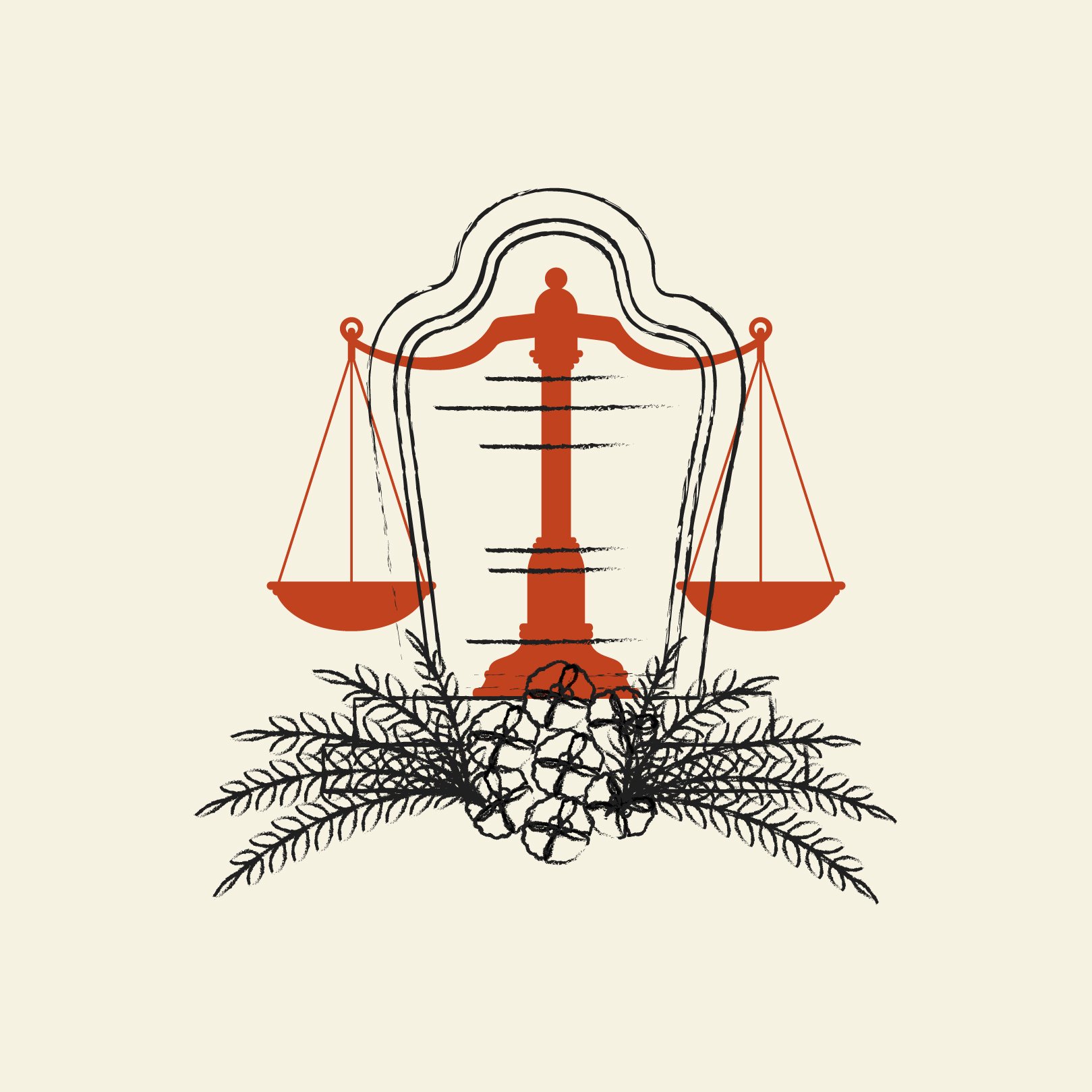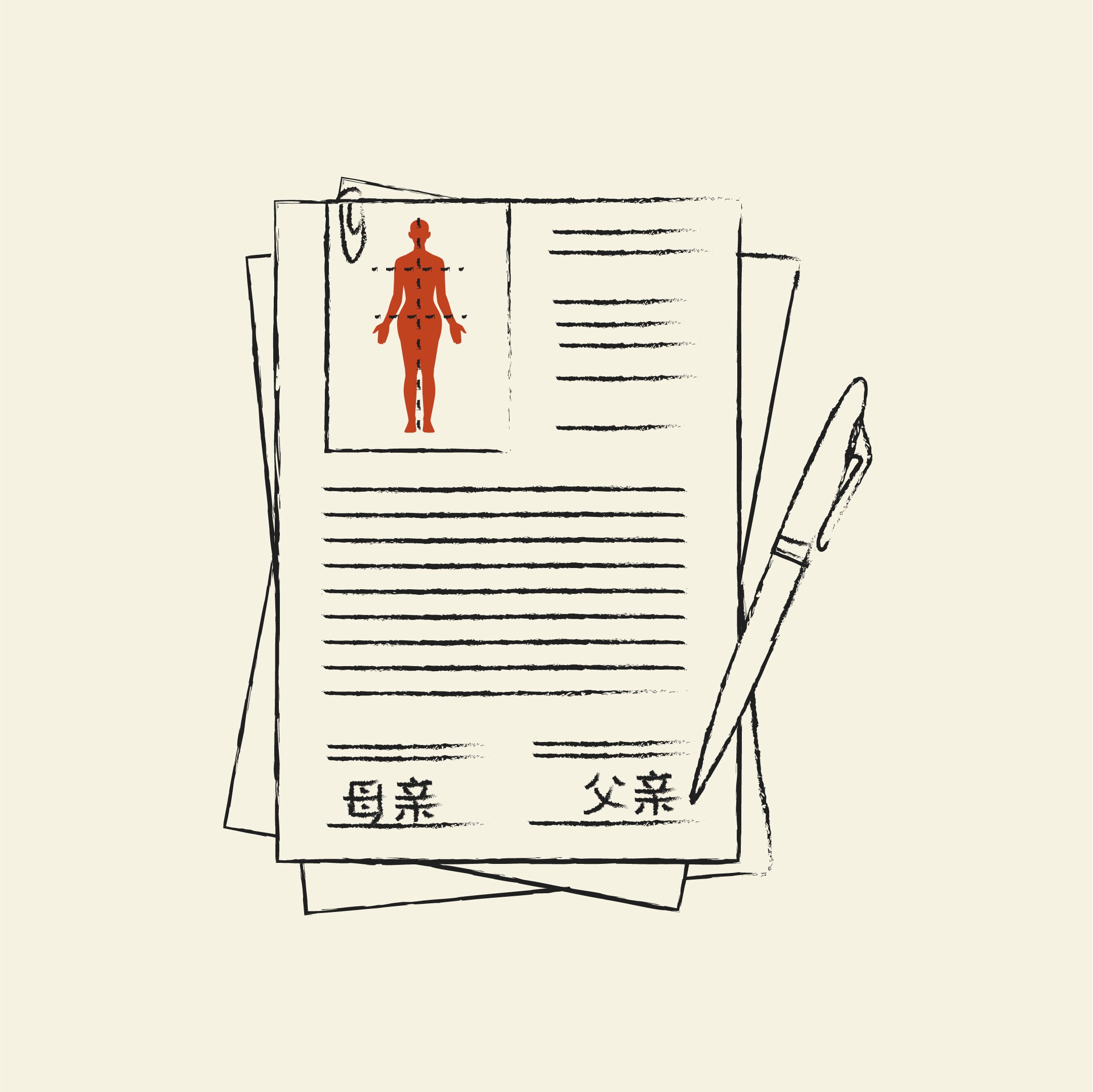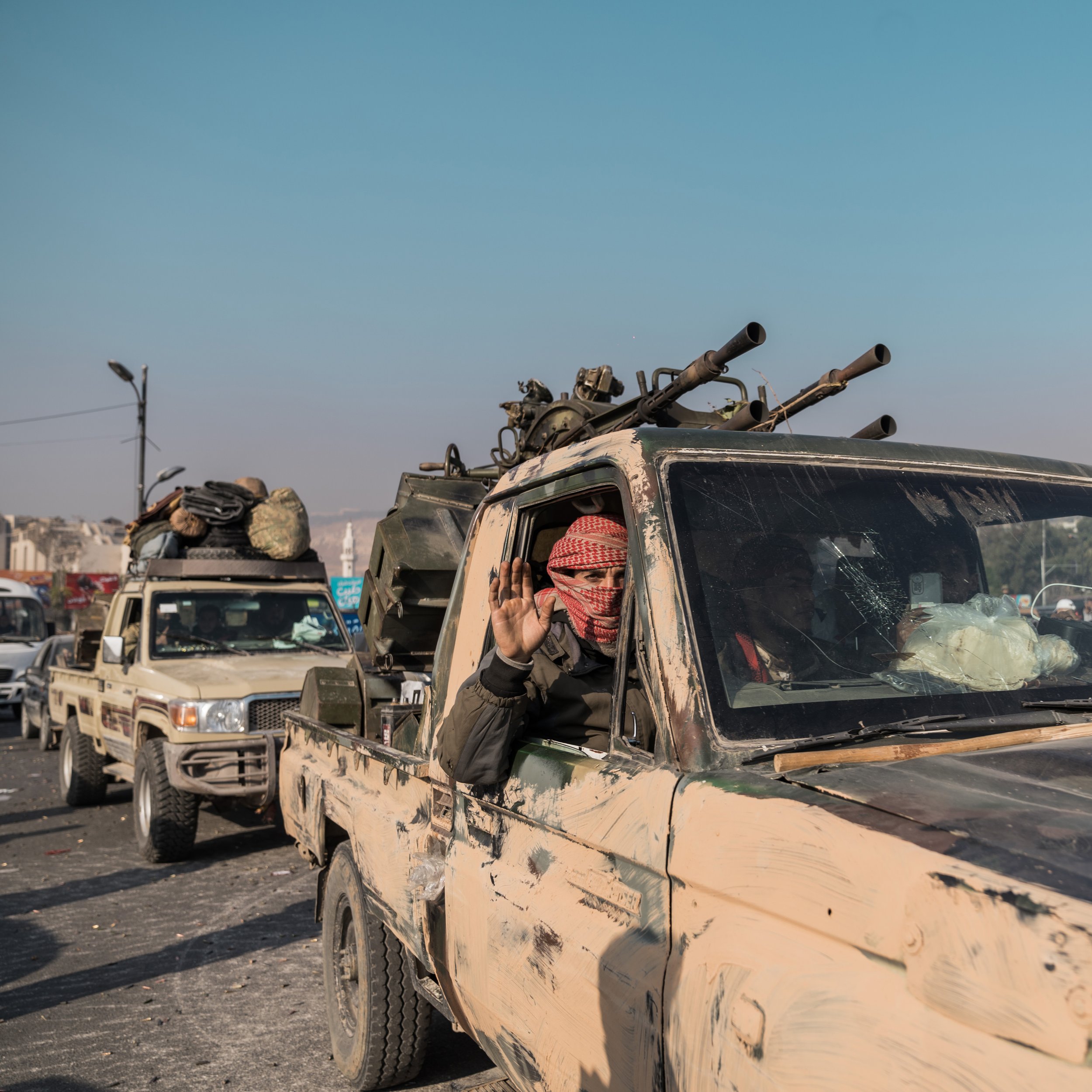Faulty Construction
Who’s to blame for Turkey’s destructive earthquakes?
FEBRUARY 13, 2025
After a 17-hour day in court, the verdict was announced at 2 a.m. It was a freezing day in December, and the chamber was so crowded that people spilled into adjacent rooms to watch the proceedings streamed on screen.
Rusen Karakaya sat in the front row wearing a silver necklace bearing the name of her daughter and crying silently. Selin was 14 when she was killed in the earthquakes that shook eastern and southeastern Turkey on February 6, 2023, causing more than 160,000 buildings to collapse and killing at least 55,000 people. She had been traveling from Northern Cyprus with her high school volleyball team and staying in the Isias Grand, a four-star hotel in the city of Adıyaman in the southeast. The seven-story building collapsed within seconds; Selin was found curled up as if still asleep, next to her best friend. Twenty-five other students, teachers and coaches were killed at the same time.
The judge asked grieving family members to “keep quiet” while he delivered the rulings, threatening to halt proceedings, remove them from the chamber and talk directly to their lawyers if they did not comply.
Two years on from the deadliest earthquakes in Turkey’s modern history, much of the rubble has been cleared, and the destruction is less visible. But victims’ families are still navigating endless paperwork and a stubborn bureaucracy as they demand accountability for the faulty construction they believe led to the death of their loved ones.
Turkey’s court system is overwhelmed with similar cases, as families seek to hold accountable those responsible.
Karakaya and the families of the other victims had been traveling back and forth between Northern Cyprus and Adıyaman for court hearings that would determine whether the hotel was structurally unsafe and had failed to meet earthquake safety regulations. Many blamed themselves for choosing the wrong hotel for their children. “We only sleep a few hours a night,” Karakaya said.
Experts from the Earthquake Research Center of Istanbul Technical University and civil engineering professors from Dokuz Eylül university concluded that if the hotel had been built in accordance with earthquake regulations the building would not have collapsed. Other court cases related to hundreds of buildings across the affected region came to similar conclusions. In the case of the Isias Grand, the judge convicted the hotel’s owner, Ahmet Bozkurt, and its architect, Erdem Yilmaz, of “causing the death and injury of more than one person through conscious negligence.” Both were sentenced to 18 years in jail. Bozkurt's son, Mehmet Fatih, who had also been involved in the construction and running of the hotel, was given 17 years for the same charge.
Turkey’s court system is overwhelmed with similar cases, as families seek to hold accountable those responsible. Several hundred building owners and contractors were arrested in the immediate aftermath of the earthquakes. Some went into hiding, and at least one was caught at the airport trying to flee the country. But many suspects have been released pending trials that face severe delays due to a backlog in hearings.
“Prosecutors are overwhelmed and constantly being replaced. It’s a bureaucratic mess,” lawyer Eren Can told me. Both his parents were killed in their home during the earthquake; he said he wants to see those responsible for its collapse stand trial but has not yet managed to bring his case to court.
In the days and weeks after the disaster, Turkey's President Recep Tayyip Erdoğan spoke about the importance of punishing those responsible for the tragedy. These days, his public comments are focused on rebuilding. In a speech in January, he said that by focusing on constructing new homes, “we are giving the best answer to those who said, 'the government will be buried under this rubble' after the earthquake.”
In elections in 2023, the president’s Justice and Development Party made further gains in the earthquake region, winning 10 of the 11 affected provinces. Many voters seem to believe the strongman president is best placed to rebuild their devastated cities.
Local civil society groups, construction unions, international NGOs and the families of victims argue that the government is stalling efforts to hold accountable those within its ranks who played a role in the disaster. Without true accountability, they say, history will only repeat itself.
Turks accept that they live in a country prone to earthquakes. This is a nation whose consciousness has been seared by multiple deadly disasters, and whose government officials and religious leaders continue to parrot that earthquakes are “acts of god.” Space for criticism of the authorities’ handling of earthquakes is constrained — demonstrations that oppose the government are rarely tolerated, and the media is tightly controlled by the state.
After the February 2023 earthquakes, there were grand predictions that the disaster would topple Erdoğan’s long reign. However, in elections later that year, the president’s Justice and Development Party made further gains in the earthquake region, winning 10 of the 11 affected provinces. Many voters seem to believe the strongman president is the best person to rebuild their devastated cities.
It is “a desperate hunger for hope and survival,” said Aslı Aydıntaşbaş, a fellow at the Brookings Institution Turkey Project, explaining that the government reacted quickly to voters’ anger and despair with new construction projects, aid packages and effective messaging. “When your house is destroyed and you have lost everything, that promise of state power taking care of its people felt comforting to many.”
The Isias Grand was one of the most luxurious hotels in Adıyman. But it fell far below building safety standards. A 150-page technical report presented in court detailed several faults in the hotel’s construction. Poor-quality concrete had been mixed with sand and gravel from a local river. There was no ground survey report, and the building contravened the permissions in its original permit when it was built in 1993. In 2001 the licence was renewed, allowing the building to continue to operate as a hotel, and in 2016 an extra floor was added without the necessary permissions from the local municipality.
“It was a simple transaction,” said Güney, “You give me your vote and I will give you your title deed.”
Two years later, the Isias Grand benefited from a government policy that effectively gave buildings the stamp of approval for payment of a fee, removing the need for safety certificates and overlooking flaws in their permits. The Union of Chambers of Turkish Engineers and Architects has said up to 75,000 buildings across the affected earthquake zone benefited from this scheme, which has run on and off since the 1960s.
Murat Güney, a social scientist and urban researcher in Istanbul, said this policy began because the government had been unable to provide enough social housing for rapidly expanding populations, leading to the illegal construction of shoddy housing and shanty towns. Before elections, the government would announce a construction amnesty for people who built homes illegally, giving them the opportunity to be officially recognized on paper. “It was a simple transaction,” said Güney, “You give me your vote and I will give you your title deed.” Just days before the February 2023 earthquakes, Turkish media reported the government was debating a new draft amnesty law to approve more recent unregulated construction work.
Officials have not been included in the indictments for the hundreds of ongoing court cases, including the case brought by the families of those killed when the Isias Grand collapsed. Under Turkish law, public prosecutors are required to get permission from the government before they can investigate public officials and elected municipal authorities. Very few requests are being granted.
Human Rights Watch and the Turkish NGO Citizens Assembly have filed freedom of information requests with Turkey’s authorities asking them to make public how many applications to prosecute public officials had been submitted and approved. The government is refusing to release the figures, saying it would be a breach of confidentiality to share personal information. The request continues to be fought over in the courts.
In 1999, the Marmara earthquake killed more than 17,000 people. The European Court of Human Rights ruled that Turkey had violated the right to life by failing to conduct effective investigations into poor building practices. In the aftermath of the 1999 quake, Turkey introduced new building codes requiring new construction to be earthquake resilient. These codes were last revised in 2018. But enforcement is patchy and often overridden by building amnesty policies. Turkey’s Interior Ministry did not respond to a request for comment for this article.
✺
“Earthquakes don’t kill people, buildings do.” This is what seismologists, engineers and locals alike have repeatedly told me. Geologist Naci Görür stressed that the tragedy Turkey witnessed in 2023 was preventable. “Look at Japan,” he told me. When a 7.6 quake, like the one in Turkey, occurred in Japan in 2024, fewer than 200 people died.
Following the February 2023 earthquakes, the Istanbul municipality received tens of thousands of applications from Istanbul landlords and renters requesting earthquake safety checks on buildings. But Pınar Çalışkan, a municipality worker, told me when her team would come to check buildings, they could only inspect fewer than half of them; other residents would send the inspectors away, preferring not to know if their building is safe or not. Çalışkan, a civil engineer and director of the Istanbul Urban Works Directorate, said the reluctance is largely about money — landlords worry about the high cost of tearing down and rebuilding if their building fails the safety test, and residents worry about the high price of rent if they have to move out of their homes.
The pace of many cases remains slow. Often, insufficient evidence was collected before rubble was hastily cleared away in the aftermath of the earthquakes, making it hard to prove why the buildings crumbled so easily.
Döne Kaya was studying for her PhD in literature in Ankara when her mother, sister, brother-in-law and nine-month-old nephew were killed in the 2023 earthquakes, along with 65 others in their apartment building. Their home collapsed as they tried to escape; an expert report later found that the building’s foundation was not up to standard, and that the quality of its concrete and structure were insufficient. After years of waiting, she has finally brought the case to court; the first hearing took place in January. None of the officials from the municipal government who approved construction are being tried.
When we met at a coffee shop in Istanbul on a sunny January afternoon, Kaya told me she is nevertheless hopeful that the case will yield results. After the disaster, she put her studies on hold. She now helps coordinate a group of 40 families to navigate a clogged legal system and bureaucratic hold-ups.
The pace of many cases remains slow. Often, insufficient evidence was collected before rubble was hastily cleared away in the aftermath of the earthquakes, making it hard to prove why the buildings crumbled so easily. The academic experts employed by the government to assess samples from collapsed homes are overworked. One professor who helps to evaluate evidence admitted there is such a backlog that he and his colleagues can only spend eight minutes on each case. Meanwhile, the interior ministry continues to deny permission for public officials to be named in many of the indictments.
Kaya told me that in May 2024, frustrated by how slowly investigations were proceeding, she launched a solitary protest outside a courthouse in Ankara, the country’s capital. “I wanted some public reaction,” she told me. The police quickly intervened. She tried again near a human rights monument, then moved to busy intersections, holding homemade banners over her head and shouting at anyone who would listen. She carried on every week for 25 weeks. She had hoped others would join her, but her public acts of anger never gained momentum. At most 10 people protested alongside her at any one time.



